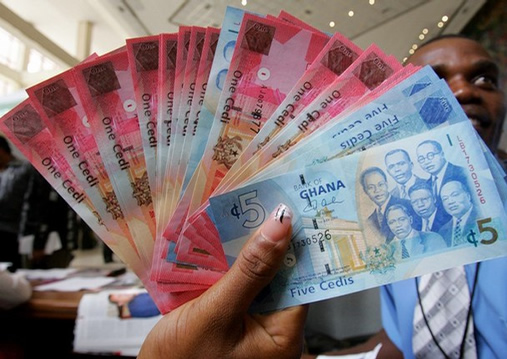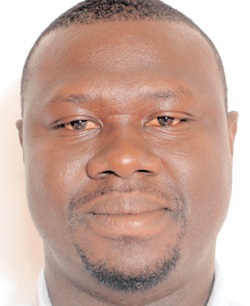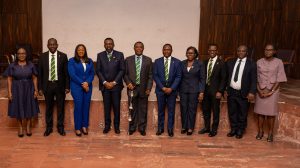
By. Bernard TETTEH-DUMANYA (Dr)
In a recent public commentary, former Vice President Dr. Mahamudu Bawumia attributed the appreciation of the Ghanaian cedi in 2025 to policies implemented under the previous New Patriotic Party (NPP) administration.
He specifically highlighted the gold-for-oil initiative, the Bank of Ghana’s gold reserve accumulation, the global weakening of the U.S. dollar, and restrained public expenditure by the current NDC government as key drivers of the cedi’s resurgence.
While these remarks are positioned to credit past NPP policy interventions for current macroeconomic stability, a closer examination reveals several economic and logical inconsistencies.
One of the most striking contradictions lies in Dr. Bawumia’s shifting stance on the relationship between macroeconomic fundamentals and exchange rate dynamics. In 2014, while in opposition, he famously asserted that “if the fundamentals are weak, the exchange rate will expose you.” This statement became a cornerstone of his critique against the then NDC government during periods of cedi depreciation.
However, during his tenure as Vice President and Chair of the “solid” Economic Management Team, Dr. Bawumia adopted a markedly different position.
When the cedi came under pressure, he contended that currency depreciation does not necessarily signal weak fundamentals, often attributing the depreciation to external shocks beyond the government’s control.
This apparent inconsistency reflects a troubling tendency toward political opportunism rather than a principled, evidence-based approach to economic policy.
If one holds that weak fundamentals inherently lead to exchange rate vulnerabilities, then it logically follows that the cedi’s significant depreciation during his time in office should equally be viewed as a symptom of underlying structural weaknesses, not merely the result of external pressures.
Such contradictory narratives undermine public confidence and raise important questions about the coherence and integrity of Dr. Bawumia’s knowledge of Ghana’s economic discourse.
In 2025, Dr. Mahamudu Bawumia asserted that the Ghanaian cedi’s appreciation is primarily a result of the gold-for-oil policy, and the gold accumulation strategy implemented during the previous New Patriotic Party (NPP) administration.
While it is economically sound to recognize the importance of building foreign exchange reserves in safeguarding a currency against volatility, Dr. Bawumia’s attribution suffers from a post hoc fallacy; mistaking chronological succession for causation.
From an empirical standpoint, foreign reserves support currency stability most effectively when aligned with prudent and current fiscal and monetary policies.
The appreciation of a currency, particularly in open market economies, is more often a forward-looking signal reflecting investor confidence, market sentiment, and the credibility of ongoing economic management.
It is therefore logically inconsistent to credit 2025 exchange rate movements to policy decisions whose implementation had either concluded or lost momentum years earlier.
Although the Bank of Ghana’s gold purchases may have helped mitigate the balance-of-payments crisis in 2022–2023, the assertion that these past actions are the primary drivers of the cedi’s 2025 appreciation overlooks the complex and dynamic nature of currency markets.
Current macroeconomic outcomes are largely shaped by present-day governance, fiscal discipline, and credible monetary policy factors which investors actively monitor. Attributing ongoing developments to legacy policies, without acknowledging the influence of the current administration’s decisions, discounts the real and measurable efforts being made today by the NDC government.
More critically, Dr. Bawumia’s position reflects a troubling unwillingness to recognize the contributions of others. His dismissal of the current government’s role in fostering macroeconomic stability appears politically motivated and lacks analytical fairness.
One must ask: if the cedi were depreciating under the current administration, would he still attribute that to past policies? It is unlikely. This selective narrative implies that only positive developments stem from his tenure, while all negative trends are the fault of others’ a stance that is neither objective nor intellectually consistent.
It is important to acknowledge that while reserve accumulation is essential for long-term resilience, the cedi’s current appreciation is occurring under a new administration and is likely influenced by factors such as renewed investor confidence, ongoing fiscal consolidation, enhanced policy credibility under the IMF program, and improved monetary-fiscal coordination.
Indeed, the Bank of Ghana’s own Monetary Policy Report has noted that short-term exchange rate movements are more directly impacted by real-time fiscal discipline, external inflows, and policy credibilityrather than reserve buffers alone.
Dr. Bawumia has challenged the current administration to identify a single policy responsible for the recent appreciation of the cedi, attributing current macroeconomic improvements to the legacy of the previous NPP government.
However, this view overlooks the complexity of currency markets, which are influenced by ongoing fiscal policies, market expectations, and global trends. His argument also references the weakening of the U.S. dollar and compares Ghana to Zambia. While a softer dollar affects emerging markets broadly, it does not fully explain the cedi’s performance.
Ghana’s currency has historically been more volatile due to domestic factors like inflation, debt servicing, and trade imbalances.
Unlike Zambia, Ghana has not benefited equally from commodity exports or debt restructuring. Thus, the cedi’s gains are more credibly linked to internal policy credibility than external trends alone. Dr. Bawumia’s explanations also rely heavily on selective comparisons.
The Dollar Index (DXY) has seen cyclical changes, not a sustained decline, and other regional currencies like Nigeria’s naira have not mirrored the cedi’s performance. This suggests internal policy actions are more decisive.
Overemphasizing external factors ignores Ghana’s specific economic realities. It is dangerous for Dr Bawumia to continuously oversimplify such economic dynamics undermines public discourse and no wonder in 2017, he claims of having “arrested the cedi and given the keys to the IGP” serves as a caution against political sloganeering if he indeed wants to become president in Ghana.
Dr. Bawumia also argues that limited spending by the current administration—particularly its failure to pay Independent Power Producers (IPPs) and contractors has eased pressure on the cedi by reducing demand for foreign exchange.
While this may be true in the short run, it is a dangerously flawed justification for currency appreciation. Thus, claiming reduced expenditure as a virtue oversimplifies the relationship between public spending and currency health.
In summary, Dr. Bawumia’s attribution of the cedi’s recent appreciation to policies of the past government reflects a mix of economic misinterpretation and political deflection. While some foundational efforts such as gold reserve accumulation may have contributed to earlier stability, the sustained appreciation of the cedi in 2025 is more likely the result of ongoing fiscal discipline, IMF-backed reforms, and reduced speculation due to increased policy credibility.
Furthermore, relying on reduced spending or global dollar trends without acknowledging Ghana’s internal structural issues reveals a narrow reading of complex macroeconomic dynamics. For a more productive national economic discourse, future commentary must center on evidence-based policy impact, not retrospective credit-claiming.
>>>the writer is a distinguished Ghanaian financial economist and consultant with nearly three decades of experience spanning academia, corporate finance, and agribusiness. He has held pivotal roles at institutions such as UBA Ghana, SIC Financial Services, Empretec Ghana, and the Swiss International Finance Group, reflecting his profound understanding of global finance. Renowned for pioneering efforts in risk management, compliance, and corporate strategy, Dr. Tetteh-Dumanya has significantly contributed to Ghana’s financial landscape.
His expertise encompasses venture capital, business and financial reengineering, and fundraising, playing a crucial role in the growth and development of numerous entities. Driven by a commitment to capacity development, he has provided consultancy services to a diverse array of local and multinational organizations, including GIZ, AGRA, SNV, DANIDA, and USAID.
As the CEO of SGL Royal Kapita, he has introduced innovative investment services targeting Ghana’s agriculture sector, aiming to support farmers and agribusinesses in achieving financial stability and growth. Beyond his professional endeavors, Dr. Tetteh-Dumanya is an influential columnist, offering incisive analyses on Ghana’s economic policies and advocating for strategic financial mechanisms to enhance the nation’s economic sovereignty. For inquiries, Dr. Tetteh-Dumanya can be reached at: [email protected]
The post Critical examination of Bawumia’s argument on appreciation of the Cedi in 2025 appeared first on The Business & Financial Times.
Read Full Story























Facebook
Twitter
Pinterest
Instagram
Google+
YouTube
LinkedIn
RSS